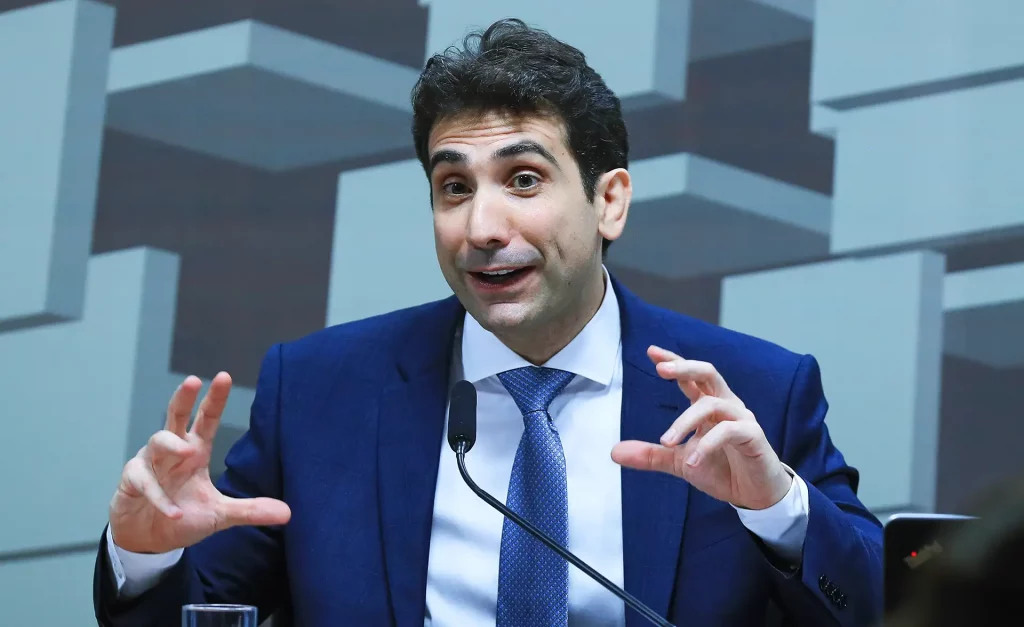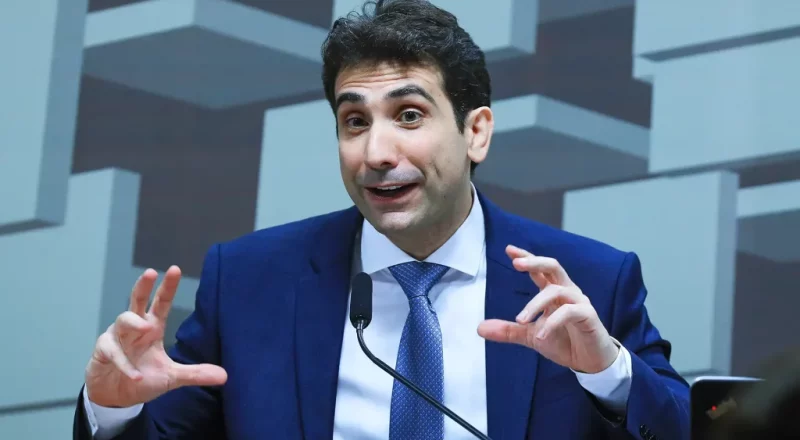
The Senate's Economic Affairs Committee (CAE) approved this Tuesday, unanimously, the appointment of the director of Monetary Policy at the Central Bank, Gabriel Galípolo, for the presidency of the BC from 2025, after a peaceful hearing with almost four hours long.
Former executive secretary of the Ministry of Finance and appointed by President Luiz Inácio Lula da Silva to replace Roberto Campos Neto in command of the Central Bank, Galípolo was approved with 26 favorable votes in the collegiate.
The final analysis will be made in a vote in the Senate plenary in a session scheduled for this Tuesday afternoon.
In a meeting that passed without clashes, Galípolo was asked more than once about the risks of the government exerting influence on the conduct of monetary policy after his inauguration, but he replied that he was never pressured in his position and received complete freedom to work at the BC.
“Every time I was given the opportunity to meet President Lula, I listened emphatically and clearly to the guarantee of freedom in decision-making and that the performance of the role must be guided exclusively by the commitment to the Brazilian people,” he said.
READ MORE: After Galípolo's nomination for BC presidency, doubt is the name for director of Monetary Policy
He stated that in his current position as director he has already voted to cut, maintain and raise interest rates, and argued that this is not a sign of courage because he has never suffered any type of pressure from the government.
In the session, Galípolo highlighted the BC's concerns with factors that impact inflation, reaffirming recommendations for caution in the management of basic interest rates, currently at 10.75% per year after the monetary authority restarted a cycle of increasing the Selic.
For him, the current scenario with positive surprises in activity, unanchoring of inflation expectations and a more devalued exchange rate demand prudence in the monetary authority's actions.
In the director's view, economic signs point to slower and more costly disinflation, with the BC's role being more conservative to ensure that interest rates are at the level necessary to achieve the inflation target.
“There is still a lack of anchoring that bothers us and that, in conjunction with the various variables, unanchored expectations, a tighter job market, conditions that seem more adverse, an exchange rate that seems to remain at a more devalued level than a while ago and a economy that has been surprising, growing above original projections, this greater prudence from the point of view of monetary policy is recommended”, he said.
The director stated that the autarchy's job is to seek the inflation target defined by the elected government and that the BC has been unequivocal in seeking to achieve the target. Galípolo added that the target is 3% and that the tolerance margin of 1.5 percentage points serves to absorb possible shocks, not to reduce the effort of monetary policy.
He also highlighted that Brazil is now recognized for its monetary and financial stability and added that core inflation in the country in the last 12 months was at levels comparable to those of stable economies such as the United States and the United Kingdom.
(By Bernardo Caram)
